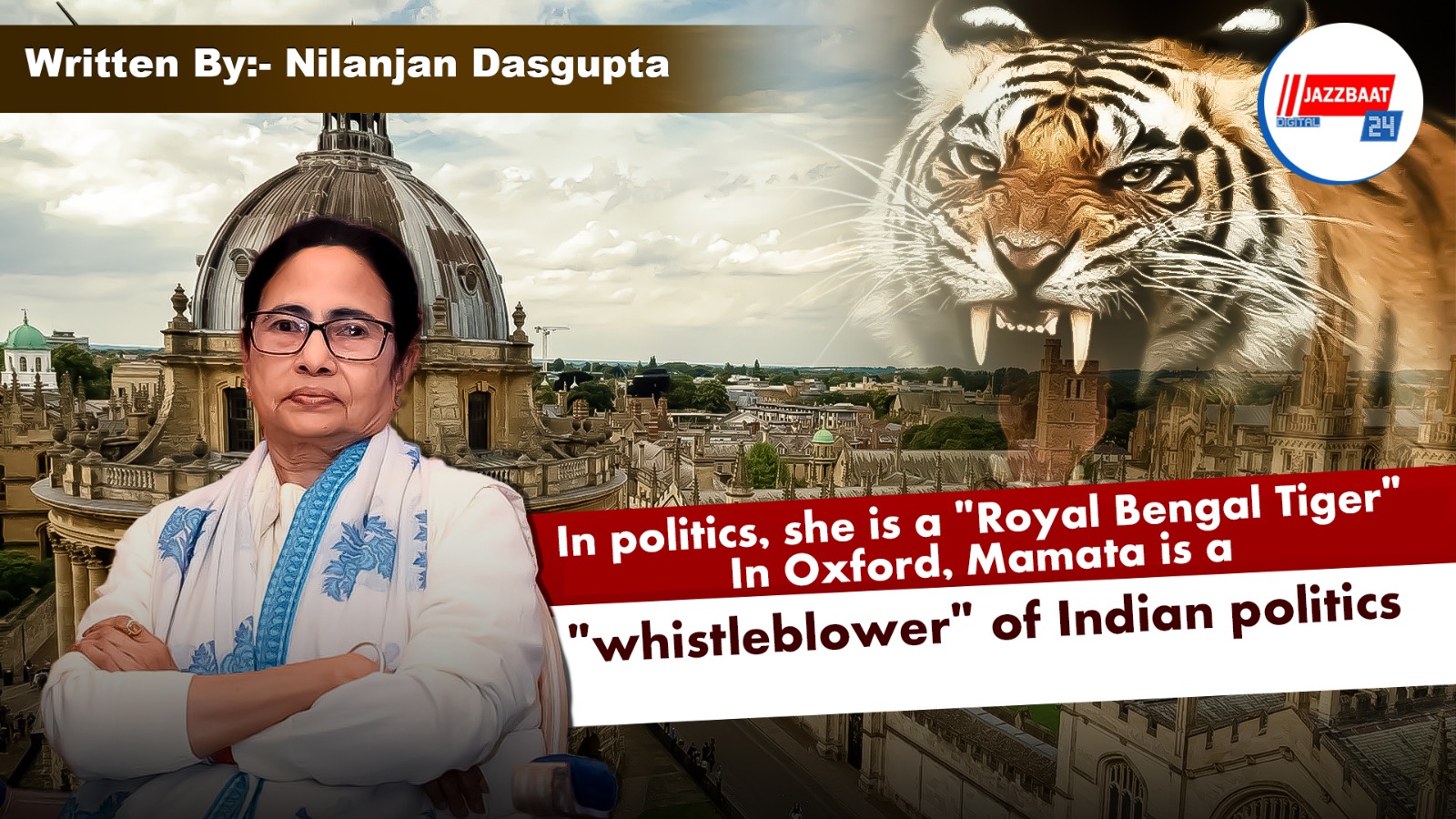In Oxford, Mamata is a "whistleblower" of Indian politics

"I live like a Royal Bengal Tiger. Catch me if you can. Remember, if you cannot hear or understand the whistle of a train, you will fall behind by hundreds of miles. You will become even more zero than zero." Everyone must be familiar with the famous song "Five Hundred Miles" written by American songwriter Hedy West. Mamata Banerjee gave this political message while standing on the Oxford University campus by reciting the lines of that song. She explained that she is now a "whistleblower" in Indian politics. If she cannot understand the whistle (read the pulse of a person), she will be completely out of reach. In fluent English, with a strong jaw but a strong temper, she kept herself in check in the face of sharp questions and gave appropriate answers to each question, explaining that the fiery daughter of Bengal is now 'another Mamata'. She explained that if she did not understand her, she would go far ahead to the top of the milestone and explained the unique anecdote of the new transition of the daughter of the house at the juncture of history. She is Mamata Banerjee - a "whistle blower" in the history of Indian political struggle and the future of Indian politics.
Late on Thursday night, at around 11:30 pm Indian time, Mamata Banerjee, the fiery daughter of Bengal, is giving a speech as an invited guest at the Kilk College auditorium on the campus of Oxford University. Many refer to her as the "Chief Minister of the State". Mamata Banerjee realized in Kolkata that the so-called elite educated community would not hesitate to muddy the waters by giving a speech by the Chief Minister at the world's leading educational institution, Oxford. Therefore, she had prepared herself completely and set foot on London soil, which Mamata herself had also announced upon reaching London. In addition to her personal struggles and struggles, she also explained her political struggles in her speech, as well as the story of her transition from opposition leader to administrator. She gave an account of her success story as an administrator, and did not forget to take a dig at the opposition Left or saffron camp when necessary. Mamata also told how the state has reached the pinnacle of success through planning, mainly through the awakening of women's power or the empowerment of women from Kanyashree. Mamata's speech touched on everything from Kanyashree to Lakshmi Bhandar, from Swasthya Saathi to scholarship projects for students and youth, to creating an industry-friendly environment for the industrialization of the state. Mamata explained that demonetization has crippled the country's economy without mentioning anyone's name. After that, Mamata did not forget to mention the negative impact on the socio-economic development of the state, especially the helplessness of the women of the house, mentioning that the country's economy was on the verge of collapse. Just as she has come forward more and more in politics despite repeated blows, Mamata explained the essence of the Kanyashree to Lakshmi Bhandar project by keeping the empowerment of women or women's power in mind to strengthen the foundation of the state's collapsed socio-economic structure. It is noteworthy, and it is no secret that the main force for political struggle and reaching the peak of success is women's power or women's vote. Therefore, political ideologues understand very well that women's development and empowerment are her top priorities. Mamata Banerjee has single-handedly created the politics of struggle and resistance in all corners of the state to remove the 34-year-old Left era, and Mamata herself knows that the story of that struggle is her main weapon. Therefore, in the middle of her speech, sometimes the issue of Ajikar or Abhaya, sometimes the history of Singur or the Tata group, sometimes the accusation of the politics of religious polarization, sometimes her religion, when Mamata was harassed one after another in the auditorium with questions, Mamata retaliated by showing the picture of an attempt to kill her by hitting her on the head with a stick at Hazra More on August 16, 1990. That attack on Mamata by Lalu Alam of Banjman and the subsequent attacks on Mamata by Left leaders and activists on several occasions, turned Mamata into the fire girl of Bengal during the 34-year-old Left era. When Mamata displayed the picture of the 1990 incident in the auditorium as a counter-weapon, the entire auditorium erupted in applause. The resistance of the left-wing students who were asking questions against her became secondary. When the uproar started, when Mamata was waiting by temporarily stopping her speech, Jonathan Michie, the Vice-Chancellor of Oxford University and President of Kellogg College, requested her to sit down temporarily. But Mamata, who has been dealing with such political situations for a long time, rejected the proposal and sent a message to the authorities, "This is their eternal nature. Their job is to oppose constructive work. They are 10 to 12 in number. You who have come to listen to me, ignore them." Just like the lyrics of that song, "Let them say whatever they want, what does their words matter?" Instead, Mamata informed the administrator, "Her religion is the religion of the people. She has no religion of her own. Hindu, Muslim, Christian, Jain, Sikh, all are his religions." Unity in diversity is the tradition of India, unity and humanity as Indians.